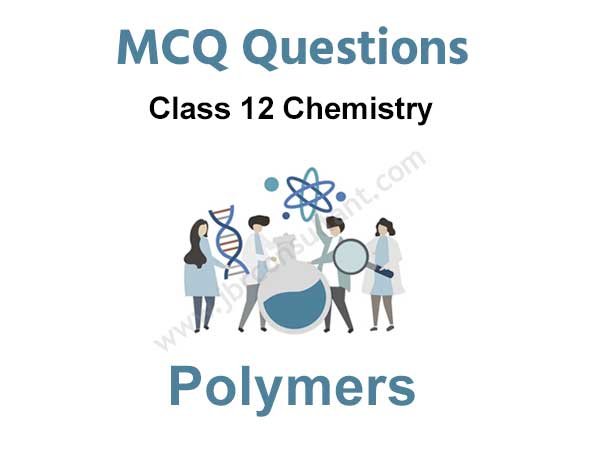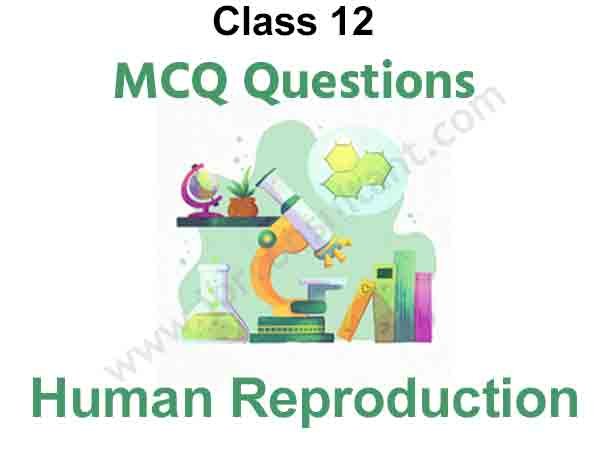Psychological Disorders Class 12 MCQ is one of the best strategies to prepare for the CBSE Class 12 Board exam. If you want to complete a grasp concept or work on one’s score, there is no method except constant practice. Students can improve their speed and accuracy by doing more MCQ on Psychological Disorders class 12, which will help them all through their board test.
Psychological Disorders Class 12 MCQ Questions with Answer
Psychology Class 12 MCQ with answers are given here to chapter 4 Psychological Disorders. These MCQs are based on the latest CBSE board syllabus and relate to the latest Class 12 Psychology syllabus. By Solving these Class 12 MCQ, you will be able to analyze all of the concepts quickly in the chapter and get ready for the Class 12 Annual exam.
Learn Psychological Disorders Class 12 MCQ with answers pdf free download according to the latest CBSE and NCERT syllabus. Students should prepare for the examination by solving CBSE Class 12 Psychology Psychological Disorders MCQ with answers given below.
Question 1. Galen elaborated on the role of four humours in personal character and temperament.According to him the material world is made up of four elements
(a) earth, air, sky, water
(b) earth, fire, sky, water
(c) earth, air, fire, water
(d) earth, sky, air, fire
Answer
C
Question 2. An individual having sudden and temporary fluctuation of consciousness that blots out painful experiences is showing signs of:
(a) panic disorder
(b) mood disorder
(c) conversion disorder
(d) dissociative disorder
Answer
C
Question 3. People unable to prevent themselves from repeatedly carrying out a set of actions are affected by:
(a) manic-depressive disorder
(b) panic disorder
(c) somatoform disorders
(d) obsessive-compulsive disorder
Answer
D
Question 4. The latest system of clarification of psychological disorder is:
(a) WHO
(c) DSM-III R
(c) DSM-V
(d) ICD-9
Answer
C
Question 5. Biological factors which influence our behaviour are
(a) faulty genes
(b) endocrine imbalances
(c) malnutrition
(d) all the above
Answer
D
Question 6. Biological factors which influence our behaviour are
(a) faulty genes
(b) endocrine imbalances
(c) malnutrition
(d) all the above
Answer
D
Question 7. Psychological difficulties and complaints of physical symptoms having no biological cause are known as
(a) manic-depressive disorders
(b) panic disorders
(c) somatoform disorders
(d) obsessive-compulsive disorders
Answer
C
Question 8. When people believe themselves to be specially empowered persons suffer from
(a) delusion of reference
(b) delusion of control
(c) delusion of grandeur
(d) hallucination
Answer
C
Question 9. Obsessive-Compulsive and related disorders include
(a) Hoarding disorder
(b) Trichotillomania (hair-pulling disorder)
(c) Excoriation (skin-picking disorder)
(d) all the above
Answer
D
Question 10. Children who have marked difficulties in social interaction and communication, desire for routine and restricted interests are suffering from:
(a) Alogia
(b) Impulsivity
(c) Hyperactivity
(d) Autism
Answer
D
Question 11. Developing a fear of entering unfamiliar situation is known as:
(a) panic disorder
(b) compulsive disorder
(c) agoraphobia
(d) conversion disorder
Answer
C
Question 12. ‘I can control the weather according to my moods’. This is a statement made by a person suffering from delusion of _____________.
(a) persecution
(b) reference
(c) grandeur
(d) control
Answer
C
Question 13. Galen elaborated on the role of four humours in personal character and temperament.According to him the material world is made up of four elements
(a) earth, air, sky, water
(b) earth, fire, sky, water
(c) earth, air, fire, water
(d) earth, sky, air, fire
Answer
C
Question 14. Developing a fear of entering unfamiliar situation is known as:
(a) panic disorder
(b) compulsive disorder
(c) agoraphobia
(d) conversion disorder
Answer
C
Question 15. An individual having sudden and temporary fluctuation of consciousness that blots out painful experiences is showing signs of:
(a) panic disorder
(b) mood disorder
(c) conversion disorder
(d) dissociative disorder
Answer
C
Question 16. The latest system of clarification of psychological disorder is:
(a) WHO
(c) DSM-III R
(c) DSM-V
(d) ICD-9
Answer
C
Question 17. ‘At risk’ people fall into which category or model of abnormal behaviour?
(a) Psychodynamic model
(b) Behavioural model
(c) Cognitive model
(d) Diathesis-stress model
Answer
D
Question 18. People unable to prevent themselves from repeatedly carrying out a set of actions are affected by:
(a) manic-depressive disorder
(b) panic disorder
(c) somatoform disorders
(d) obsessive-compulsive disorder
Answer
D
Question 19. An individual reporting loss of part or some bodily functions is showing signs of:
(a) dissociative disorder
(b) panic disorder
(c) mood disorder
(d) conversion disorder
Answer
D
Question 20. ‘I can control the weather according to my moods’. This is a statement made by a person suffering from delusion of _____________.
(a) persecution
(b) reference
(c) grandeur
(d) control
Answer
C
Question 21. Psychological difficulties and complaints of physical symptoms having no biological cause are known as
(a) manic-depressive disorders
(b) panic disorders
(c) somatoform disorders
(d) obsessive-compulsive disorders
Answer
C
Question 22. When people believe themselves to be specially empowered persons suffer from
(a) delusion of reference
(b) delusion of control
(c) delusion of grandeur
(d) hallucination
Answer
C
Whoever needs to take the CBSE Class 12 Board Exam should look at this MCQ. To the Students who will show up in CBSE Class 12 Psychology Board Exams, It is suggested to practice more and more questions. Aside from the sample paper you more likely had solved. These Psychological Disorders class 12 MCQ are ready by the subject specialists themselves.
Fill in the blanks
Question 1. Inability to stop thinking about a particular idea or topic is known as _______________behaviour.
Answer
Obsessive
Question 2. DSM (V) is therapy to treat neurotic patients. (True/False)
Answer
false
Question 3. Dissociative amnesia is characterized by an unexpected travel away from home and workplace, the assumption of a new identity and the inability to recall the previous identity. (True/False)
Answer
false
Question 4. Mood disorders in both mania and depression are alternatively present is known as ____________.
Answer
Depersonalisation
Question 5. Compulsive behaviour is the inability to stop thinking about a particular idea or topic. (True/False)=]
Answer
false
Question 6. Ritu’s young son works in a call centre. Inspite of knowing his odd hours of returning,she continues to have prolonged, vague and intense fear, accompanied by hyper vigilance, showing a kind of anxiety. Identify the type of anxiety she is suffering from.
Answer
Generalized Anxiety disorder
Question 7. Samina keeps organizing her cupboard the whole day. Even the thought of somebody messing it, keeps her distracted in class and makes her anxious. Such symptoms are typical of which disorder?
Answer
Obsessive compulsive disorder
Question 8. A false belief that is firmly held on inadequate grounds is known as ______________.
Answer
Delusion
Question 9. Person remains motionless and silent for long stretches of time is called_____________. (catatonic stupor/catatonic rigidity)
Answer
Catatonic stupor
Question 10. Post Traumatic Stress Disorder is a psychological problem that results from ____________.
Answer
Traumatic experiences
Question 11. In bulimia nervosa, the individual eats excessive amount of food, then purge his/her body of food by using medicines such as laxatives or diuretics or by vomiting. (True/ False)
Answer
True
Question 12. _____________ means ‘away from the normal’.
Answer
Abnormal
Question 13. _____________ are the standards of test performance that permit the comparison of one person’s score on the test to the scores of others who have taken the test.
Answer
Norms
Question 14. The craze for thinness valued by models and actors is termed as ____________.(Anorexia nervosa/Bulimia)
Answer
Anorexia nervosa
Question 15. Stressor–Related Disorders are: ____________disorder and ____________disorder.
Answer
adjustment, acute stress
Question 16. A dream-like state separating self from reality is known as______________.
Answer
Bipolar mood disorder
Question 17. ADHD stands for _____________ of childhood.
Answer
Attention Deficit Hyperactivity Disorder
Question 18. Extreme pain without any identifiable biological symptom is an example of ___________ disorder.
Answer
Pain/Somatoform
Question 19. In conversion disorder, a person has a persistent belief that s/he has a serious illness despite medical reassurance, lack of physical findings and failure to develop the disease. (True/False)
Answer
false
Question 20. DSM (V) is therapy to treat neurotic patients. (True/False)
Answer
false
Question 21. Ritu’s young son works in a call centre. Inspite of knowing his odd hours of returning,she continues to have prolonged, vague and intense fear, accompanied by hyper vigilance, showing a kind of anxiety. Identify the type of anxiety she is suffering from.
Answer
Generalized Anxiety disorder
Question 22. Compulsive behaviour is the inability to stop thinking about a particular idea or topic. (True/False)=]
Answer
False
Question 23. Dissociative amnesia is characterized by an unexpected travel away from home and workplace, the assumption of a new identity and the inability to recall the previous identity. (True/False)
Answer
false
Question 24. Inability to stop thinking about a particular idea or topic is known as _______________behaviour.
Answer
Obsessive
Question 25. Person remains motionless and silent for long stretches of time is called_____________. (catatonic stupor/catatonic rigidity)
Answer
Catatonic stupor
Question 26. Mood disorders in both mania and depression are alternatively present is known as ____________.
Answer
Depersonalisation
Question 27. A false belief that is firmly held on inadequate grounds is known as ______________.
Answer
Delusion
Question 28. Samina keeps organizing her cupboard the whole day. Even the thought of somebody messing it, keeps her distracted in class and makes her anxious. Such symptoms are typical of which disorder?
Answer
Obsessive compulsive disorder
Question 29. Post Traumatic Stress Disorder is a psychological problem that results from ____________.
Answer
Traumatic experiences
Question 30. In bulimia nervosa, the individual eats excessive amount of food, then purge his/her body of food by using medicines such as laxatives or diuretics or by vomiting. (True/ False)
Answer
true
Question 31. _____________ means ‘away from the normal’.
Answer
Abnormal
Question 32. _____________ are the standards of test performance that permit the comparison of one person’s score on the test to the scores of others who have taken the test.
Answer
Norms
Question 33. In conversion disorder, a person has a persistent belief that s/he has a serious illness despite medical reassurance, lack of physical findings and failure to develop the disease. (True/False)
Answer
False
Question 34. Stressor–Related Disorders are: ____________disorder and ____________disorder.
Answer
adjustment, acute stress
Question 35. ADHD stands for _____________ of childhood.
Answer
Attention Deficit Hyperactivity Disorder
Question 36. The craze for thinness valued by models and actors is termed as ____________.(Anorexia nervosa/Bulimia)
Answer
Anorexia nervosa
Question 37. Extreme pain without any identifiable biological symptom is an example of ___________ disorder.
Answer
Pain/Somatoform
Question 38. A dream-like state separating self from reality is known as______________.
Answer
Bipolar mood disorder

You can easily get good marks If you study with the help of Class 12 Psychological Disorders MCQ. We trust that information provided is useful for you. NCERT MCQ Questions for Class 12 Psychological Disorders PDF Free Download would without a doubt create positive results.
We hope the information shared above in regards to MCQ on Psychological Disorders Class 12 with Answers has been helpful to you. if you have any questions regarding CBSE Class 12 Psychology Solutions MCQs Pdf, write a comment below and we will get back to you as soon as possible.
Frequently Asked Question (FAQs)
How many MCQ questions are there in CLass 12 chapter 4 Psychology?
In Class 12 Chapter 4 Psychology, we have provided 60 Important MCQ Questions, But in the future, we will add more MCQs so that you can get good marks in the Class 12 exam.
Can we score good marks in Class 12 Psychology with the help of Psychological Disorders MCQ Questions?
Yes, MCQ Question is one of the best strategies to make your preparation better for the CBSE Board Exam. It also helps to know the student’s basic understanding of each chapter. So, You can score good marks in the Class 12 Psychology exam.


